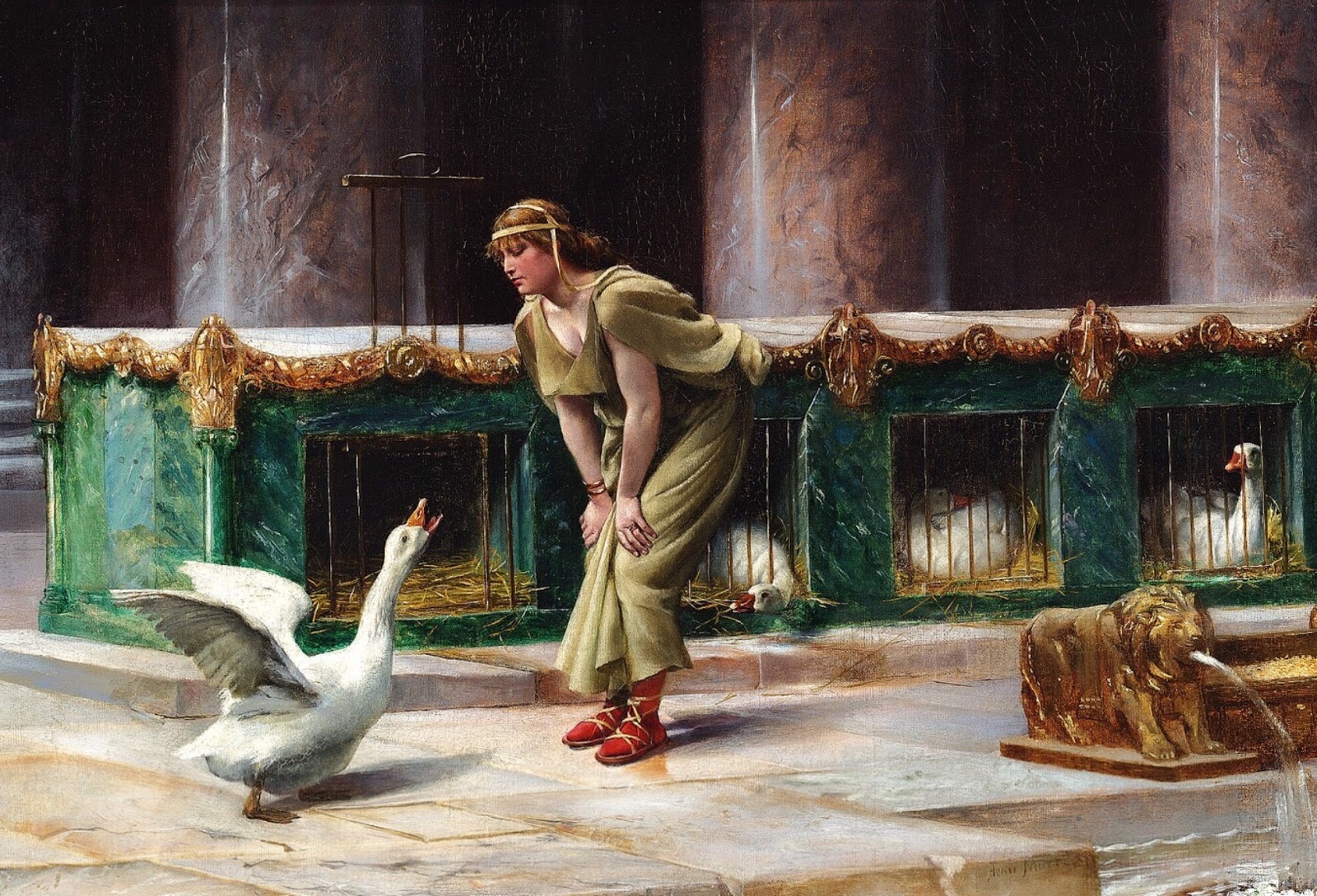The geese of the Capitol, aka the geese of Juno, by Henri Paul Motte 1889
"So spake their king, and the Gauls eagerly undertook to do his will. About midnight a large band of them scaled the cliff and made their way upward in silence. They climbed on all fours over places which were precipitous and rough, but which yielded to their efforts better than they had expected, until the foremost of them reached the heights, put themselves in array, and had all but seized the outwork and fallen upon the sleeping watch. Neither man nor dog were aware of their approach. But there were some sacred geese near the temple of Juno, which were usually fed without stint, but at that time, since provisions barely sufficed for the garrison alone, they were neglected and in evil plight. The creature is naturally sharp of hearing and afraid of every noise, and these, being specially wakeful and restless by reason of their hunger, perceived the approach of the Gauls, dashed at them with loud cries, and so waked all the garrison. At once the Barbarians, now that they were detected, spared no noise, and came on more impetuously to the attack. The defenders, snatching up in haste whatever weapon came to hand, made the best shift they could. Manlius first of all, a man of consular dignity, mighty in body and exceeding stout of heart, confronting two of the enemy at once, cut off the right hand of one of them with his sword as he was lifting his battle-axe, and dashing his shield into the face of the other, tumbled him backwards down the cliff. Then, taking his stand on the wall with those who ran to his aid and formed about him, he repulsed the rest of the enemy, who had reached the top in no great numbers, and showed no prowess to match their daring. So the Romans escaped out of their peril. At break of day, they cast the captain of the watch down the cliff among the enemy, but voted to Manlius a meed of victory which did him more honour than service. They collected for him the rations which each man of them received for one day, namely, half a pound of native spelt, Roman weight, and an eighth of a pint of wine, Greek measure."
-Plutarch, Life of Camillus: Section 27
 |
| The geese of the Capitol, aka the geese of Juno, by Henri Paul Motte 1889. |
Source:
https://en.wikipedia.org/wiki/File:MotteGeese.jpg
Quote:
http://penelope.uchicago.edu/Thayer/E/Roman/Texts/Plutarch/Lives/Camillus*.html


Comments
Post a Comment